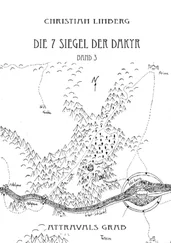You will not take this from me.
And Galina hadn’t.
“Would you like to feed her with me?” Galina asked.
“Yes.”
So they had. Side by side, like the young moms with their foreign nannies who congregated on the Central Park benches every morning. Only no swings, seesaws, or slides.
There was another difference, of course. This nanny had kidnapped them.
Joanna didn’t bother mentioning that particular fact. She was trying to hold on to the moment. Don’t upset the applecart, her mother used to say to her when she’d complain about something or other. Meaning be happy for what you have. Why? Because it can always get worse.
If you let me hold her and feed her and be with her, I’ll say nothing about what you did to us.
This, admittedly, went against every fiber of Joanna’s character. She was used to speaking her mind. But she couldn’t take the risk of Joelle being snatched from her a second time.
Galina asked Joanna how she’d slept. She commented on how good an eater Joelle was. She demonstrated the proper way to burp her. Talking to Joanna as if they were still back in the Bogotá hotel room.
And Joanna nodded, answered back, even conversed .
“Where were you born, Galina?” Joanna asked after Joelle had been fed and gently rocked into a semblance of sleep.
“Frontino,” Galina answered. “In Antioquia. North,” she added, realizing that Joanna wouldn’t know one Colombian province from another. “On an orchard farm. A long time ago.”
Joanna nodded. “What was it like?”
Galina shrugged. “We were poor. Campesinos. I was sent to school by the fathers.”
At the mention of religion Joanna recalled the black jacket and white collar you could glimpse through the confessional partition. The smell of mothballs, incense, and baby powder.
Joanna was intent on keeping the conversation going. Joelle was asleep, and any minute Galina might stand up and say hand her over . Besides, it was undeniably pleasant speaking with another human being.
There was another reason. Talking kept her from thinking.
Eighteen hours, they’d told Paul.
Galina reached over and gently and playfully caressed the spiky hair on Joelle’s head.
It would be hard not to like a woman like this, Joanna thought. There must be two Galinas; this one you’d willingly hand your baby to.
“When did you come to Bogotá?”
“During the riots,” Galina said. “When Gaitán was killed.” She explained to Joanna, described what Colombia was like in the 1940s. Jorge Gaitán was a man of the people—not lily-white the way the rest of the politicians were. Half Indian. The hope of campesinos like her father. Only he was gunned down by a madman. The country went crazy, dissolved into La Violencia that had never really ended.
Joanna listened, nodded, asked questions. She supposed she was not only interested in keeping the conversation flowing but interested in what Galina was saying. Maybe it would give her a clue.
You don’t understand, Galina had said to Paul when he’d asked her how she could kidnap them. It’s not your country.
Okay, Joanna thought, help me understand.
She reached for parallels from Hollywood. Colombia was like West Side Story —a movie she’d cried at as an eleven-year-old when she saw it on TV; the Jets versus the Sharks, with the bumbling and ineffectual Officer Krupke in the middle. Here it was leftists against rightists, with the government stuck in between.
Only there was no coming together in the end over death.
Just death.
She held Joelle even tighter within a soft rocking rhythm.
My baby, my own . . .
That song from Dumbo just flitting into her brain. Dumbo could fly away just using his enormous ears.
If an elephant could fly . . .
She tried to picture Paul on an airplane somewhere over the Atlantic. Or was he there already? How much time had passed since Paul departed?
She turned to Galina to ask her this question, but Galina was staring down at Joelle, seemingly lost in thought. Or was it memory?
“I had a daughter,” Galina said.
Joanna was about to ask what her name was, what she looked like, where she was. There’d been the undeniable use of past tense.
“What happened to her?” Joanna asked.
Galina stood up. She reached for Joelle.
When Joanna didn’t hand her over, Galina said, “I’ll bring her back.”
Joanna had no choice; she handed her daughter to the woman who’d stolen her.
AFTER JOANNA HAD WOKEN THE NEXT MORNING, SHE PRESSED HER ear up against the rough slats that covered one of the windows. She was trying to expand her universe by feet, even inches.
She heard construction sounds—scattered hammering and a muffled rhythmic pounding. She pictured a pile driver, a steam shovel. Two dogs were barking. An airplane passed overhead. Someone bounced a basketball.
Then Galina stepped into the room. There was no baby with her. This time she was bearing something else.
News.
“Your husband,” she said in a flat, emotionless voice. “He didn’t deliver the coca.”
TWENTY
There was a charred, blackened, and still-smoldering hole approximately a third of the way up the left side of Ganet Street.
Paul finally figured out that this used to be 1346.
“It burned down,” a resident in a white skullcap explained to them.
“When?” Paul asked.
“Yesterday.”
Paul felt something in his stomach—pretty much the opposite of what he’d felt before. The torturous sense of fullness had been replaced by an equally torturous sense of nothingness.
Call it a black hole, sucking in every particle of hope.
“The people who lived there?” Paul asked. “Do you know where they are?”
The man shrugged.
It turned out that no one really knew where they were. No one really knew who they were either.
“Freakin’ Ricans,” said a white man holding a beer can half submerged in a brown paper bag.
“Foreign people,” said another man, who appeared to be from Eastern Europe and spoke only a halting English.
The foreign people had kept to themselves. They’d been there only six months or so. They didn’t mix much. There were two or three of them, depending on whom you asked. Men.
“No one died, though? In the fire?”
Apparently not. The firemen, at least, hadn’t discovered any bodies.
By this time the taxi driver was growing impatient. He’d made his double fare, and he was anxious to get back.
“Keep the meter running,” Paul said.
“You okay?” the taxi driver asked him. He must’ve noticed Paul’s ghostly reflection in the rearview mirror.
They crawled up Ganet Street and found a diner. Through the window Paul could see an empty phone booth in the back. He had left his cell phone at home.
They’d given him a number. Just in case.
He’d explain. I have your drugs here, all thirty-six condoms. I just need someone to give it to.
Paul told the driver to wait.
“Sure. Give me the money you owe me.”
Paul pulled $165 out of his wallet and handed it through the partition. The guerrillas had returned his cash and traveler’s checks largely untouched.
Do you think we’re bandidos ?
No. Just kidnappers and murderers.
When Paul entered the diner, he heard the unmistakable sound of peeling tires. When he spun around, all he could see was a thin cloud of blue exhaust where the taxi should’ve been.
He used his phone card. After a minute listening to the series of dull clicks, the phone rang, but no one answered. One ring, two rings, three rings, four. Paul let it ring for approximately five minutes. They were like dog minutes—each minute the emotional equivalent of a week.
Читать дальше












